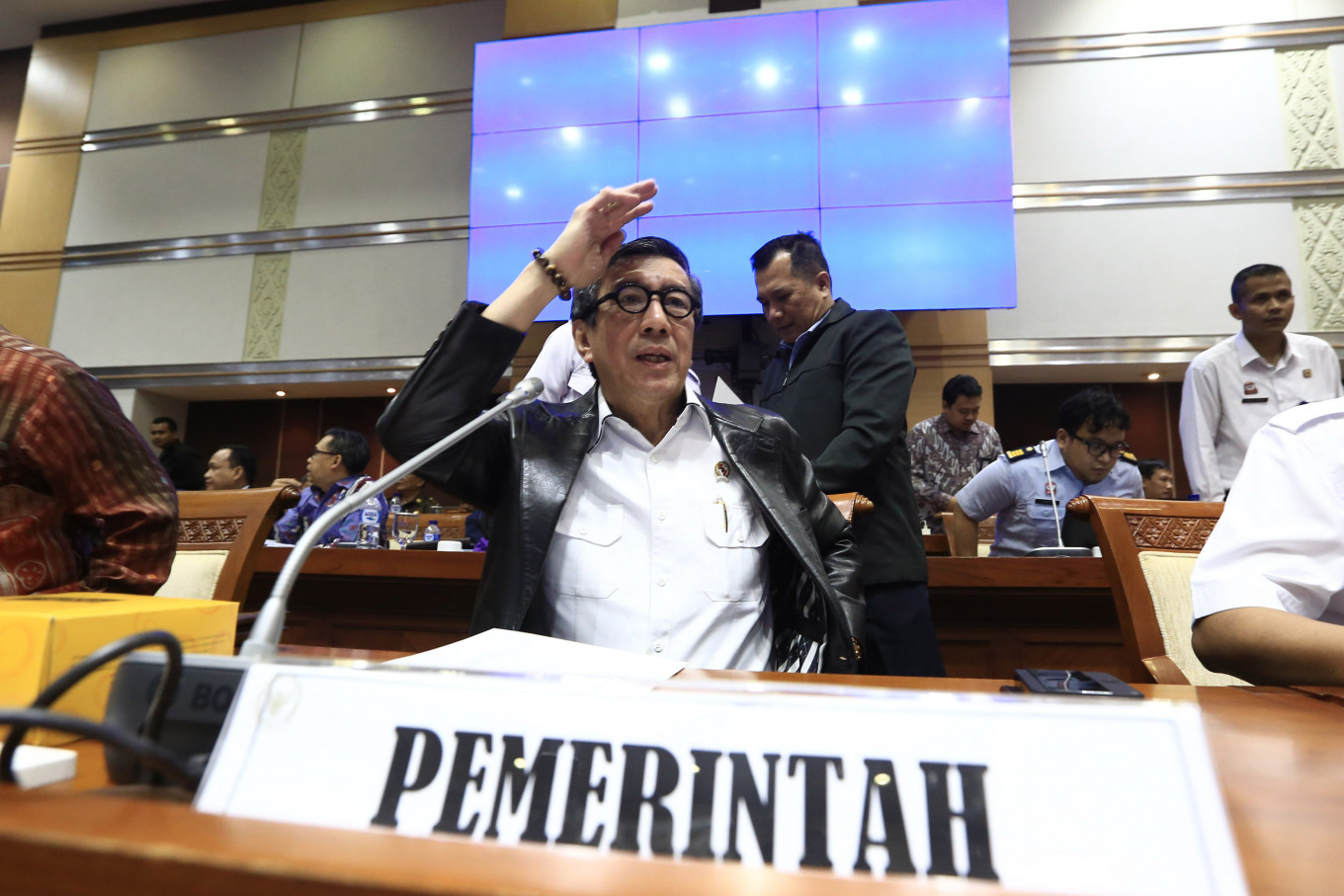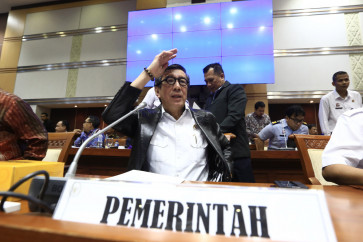Popular Reads
Top Results
Can't find what you're looking for?
View all search resultsPopular Reads
Top Results
Can't find what you're looking for?
View all search resultsQuo vadis public ethics?
The case of Yasonna should remind us of the statesmanship of founders of the Republic of Indonesia who put national interests above their own interests, ideologies, cultures and political views.
Change text size
Gift Premium Articles
to Anyone
D
ecades ago, former president of the Commonwealth of the Philippines Manuel L. Quezon set out a guiding principal for statesmen in a legendary quote, “My loyalty to my party ends where my loyalty to my country begins”. Since then that statement has become a cardinal principle for modern politicians, especially those in constitutional democracies.
In reference to the principle, let us reflect on two recent, interconnected events.
First, the presence of Yasonna Laoly, the law and human rights minister, in the middle of a press statement of Indonesian Democratic Party of Struggle (PDI-P) executives in response to alleged bribery involving former commissioner of the General Elections Commission (KPU) Wahyu Setiawan and PDI-P politician Harun Masiku.
Second, the involvement of the minister in the legal team formed by the PDI-P in response to the graft case, which is now being investigated by the Corruption Eradication Commission (KPK).
Those two events present us with three reflective questions. First, is the minister’s role in the legal team considered a violation of ethics in public administration?
Second, is his involvement a reflection of President Joko “Jokowi” Widodo’s political viewpoint or simply an act of loyalty to the party? Third, what lessons can we learn from those events?
Let us first revisit the concept of public ethics related to this phenomenon. Haryatmoko in Public Ethics and Public Service ( 2011 ) views public ethics as standard reflections or norms that determine whether an act or decision is good or bad, right or wrong, and which also guide policies throughout the process of running an accountable public service.


















